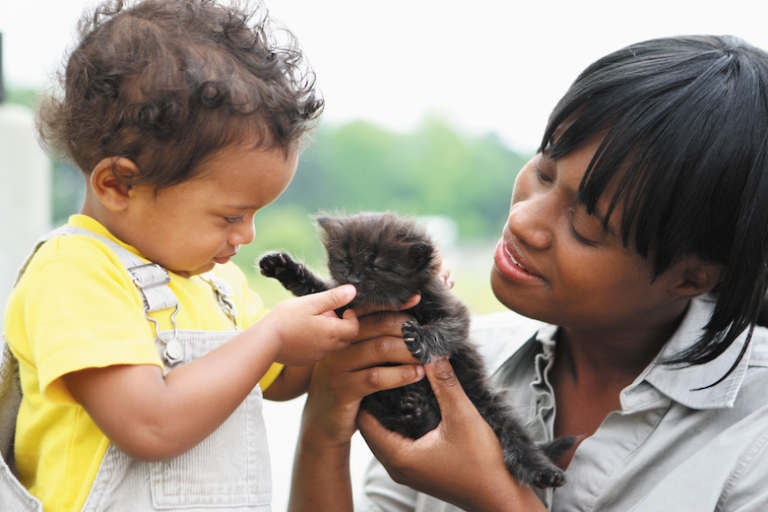
One kitten or two, adult or senior? While it’s tempting to pick the one that is the cutest, looks should not be the only factor. A cat’s behavior needs to fit your family’s lifestyle.
What’s the right age for the perfect cat for your family?
Kittens find homes quickly through shelters, rescues and breeders. But are you ready for a kitten? First you need to kitty-proof your house. Anything that dangles is a toy for kittens, including wires, string or cords; valuables can be broken; toilet seats must be down; and poisonous plants should be removed. But will the need for kitty-proofing eventually stop?
“Determining what a kitten will be like as an adult is hard,” says Dr. Terri Derr of Veterinary Behavior Options in Minnetonka, Minnesota. “You simply can’t detect an adult personality in a kitten like a puppy.”
How about an adult feline? Dr. Derr says an older cat is going to be more predictable than a kitten. Their personalities are well-developed, and their size and appearance are set. Adult cats also have the ability “to deal with small children much better, as they know how to run away when they are being poked.” An adult cat also has other benefits, such as veterinary expenses.
Many of these animals are often already spayed or neutered, and have their shots.
Looking for more predictability? Try a senior! Dr. Leanne Lilly, veterinary behaviorist and assistant professor at the Ohio State University College of Veterinary Medicine, says cats are seniors at the age of 8. “Owners get a good picture of what these cats are like, but you do have to consider they might have more medical than behavioral issues.” Still, these pets tend to be easy to take care of and with “cats able to live into their teens or 20s, adopting a senior cat can mean many wonderful years ahead.”
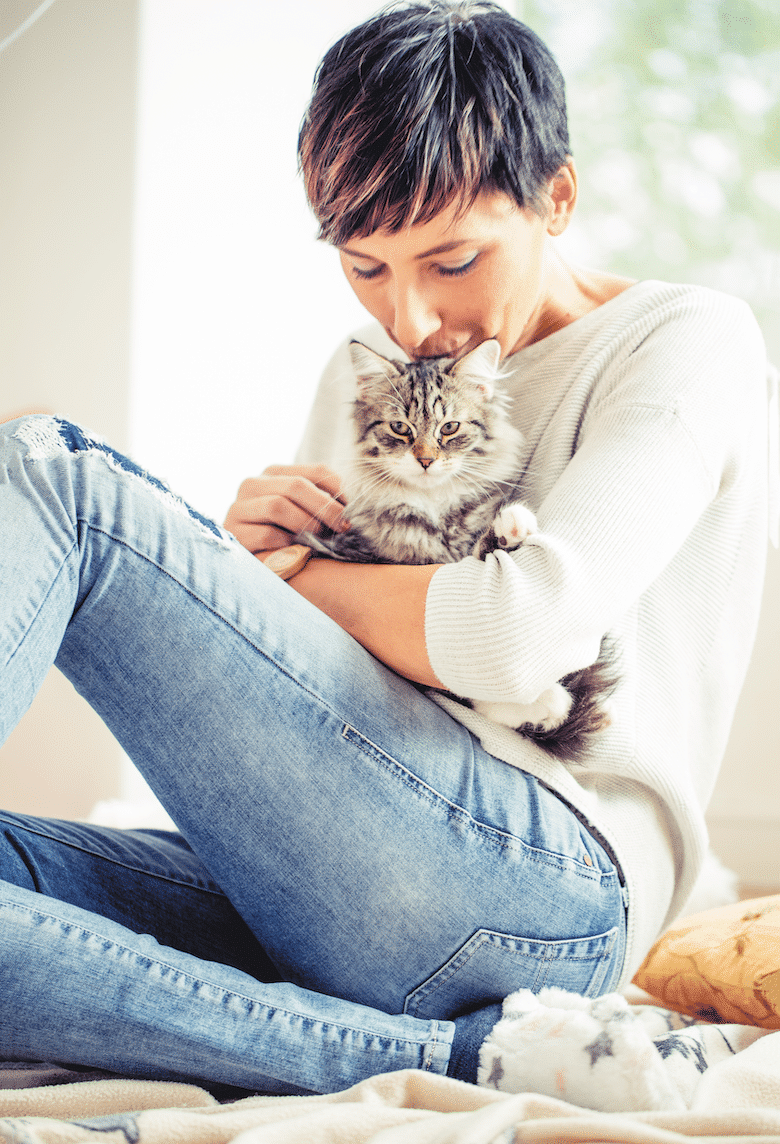
Photo: CasarsaGuru | Getty Images
Special needs pets make the perfect cat for your family
Special-needs cats want homes, too. Three-legged or blind felines can live long lives and thrive just like their healthy counterparts, according to Dr. Lilly. Adult cats with viruses like feline leukemia and FIV will probably have a shortened life span but still make great pets. Sometimes what makes an animal different is exactly what makes her so lovable.
When Brad Madson of Edina, Minnesota, retired early, he decided he wanted a cat. A friend told him about a feline leukemia kitty named Minnie Mae at an area shelter. The cat had been fearful with shelter staff, but when Brad came to see her, she came out and gave him head butts. “I knew she was meant to be with me,” Brad says. “I consulted with my veterinarian, who helped explain Minnie Mae’s health challenges. We now have a plan to keep her healthy.”
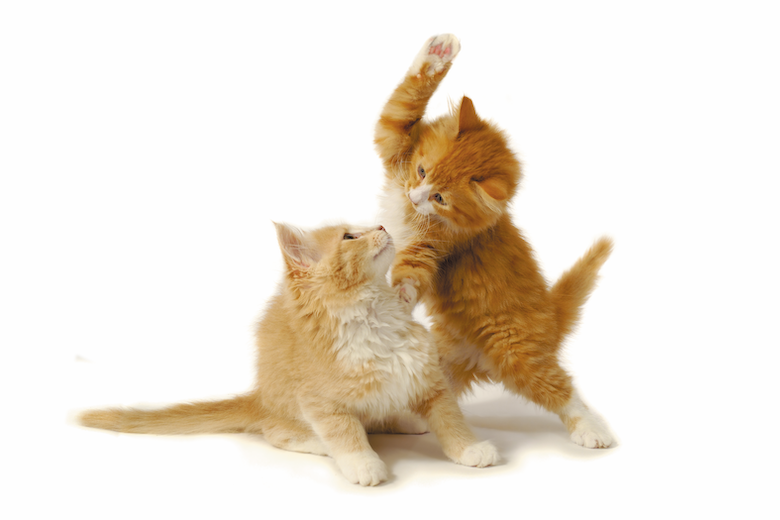
Photo: c-foto | Getty Images
Why TWO is better than one!
Two felines can socialize and expend their energy on each other, rather than on you or your furniture.
Shelters and rescues often have “bonded” animals, who come from the same home and need to be adopted together. This is a wonderful option when you’re looking to adopt two or more cats at the same time.
Spending long hours at work? Two compatible cats will keep each other company to pass the time when you’re not home.

A Scottish Fold is one of the best cat breeds for people that are often on the go. Photo: GlobalP | Getty Image
Consider activity and personality when adding a cat to your family
Besides age and health, your lifestyle, energy and living situation are also important factors. Do you want a lap kitty or a rambunctious one? Do you need a feline that gets along with your dog or children?
Dr. Derr stresses that the breed of a cat can determine activity levels and personality. “Bengal cats need a special kind of owner,” she says. “They’re always on the move, unlike Ragdolls or Birmans, who are just happy sitting on your lap.”
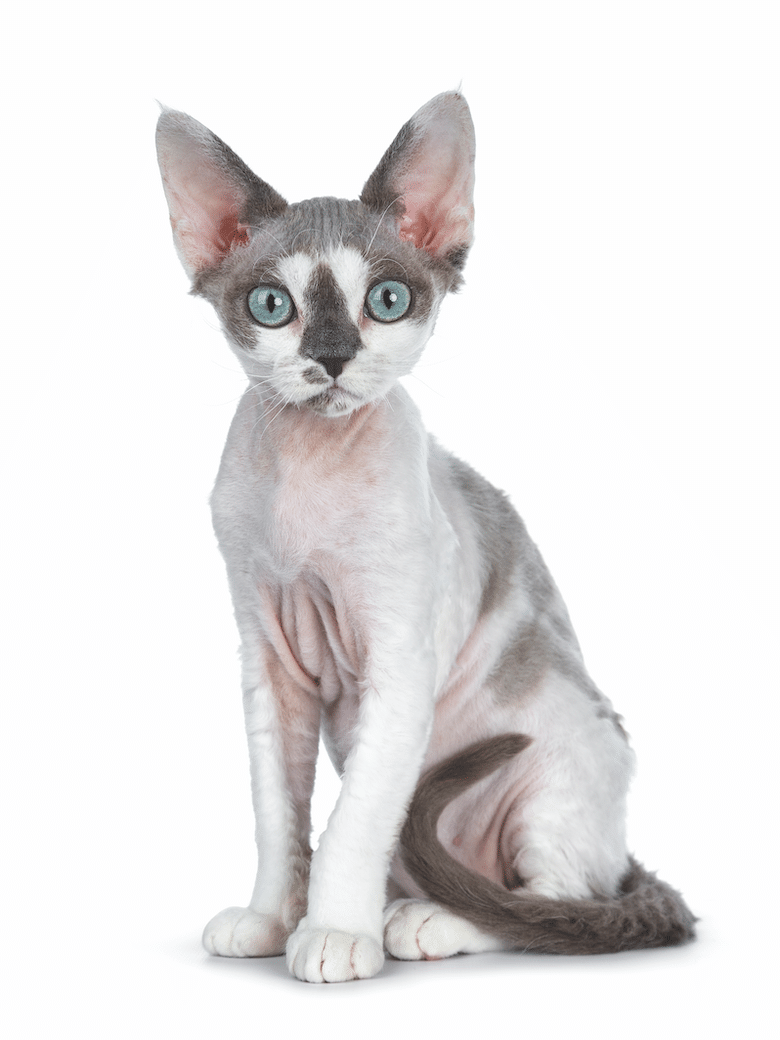
A Tonkinese is one of the best cat breeds for people who have lots of time. Photo: Nynke van Holten | Getty Images
These are the best cat breeds for…
People who have lots of time: Breeds that thrive on love and attention include: Burmese, Cornish and Devon Rex, Egyptian Mau, Persian, Ragdoll, Sphynx, Tonkinese.
People who are on the go: Breeds that are independent include: American Wirehair, British Shorthair, Manx, Norwegian Forest Cat, Russian Blue, Scottish Fold, Somali.
Families with other pets and kids: Breeds that are active and outgoing include: Abyssinian, Bengal, Birman, Japanese Bobtail, Maine Coon, Siamese, Siberian.
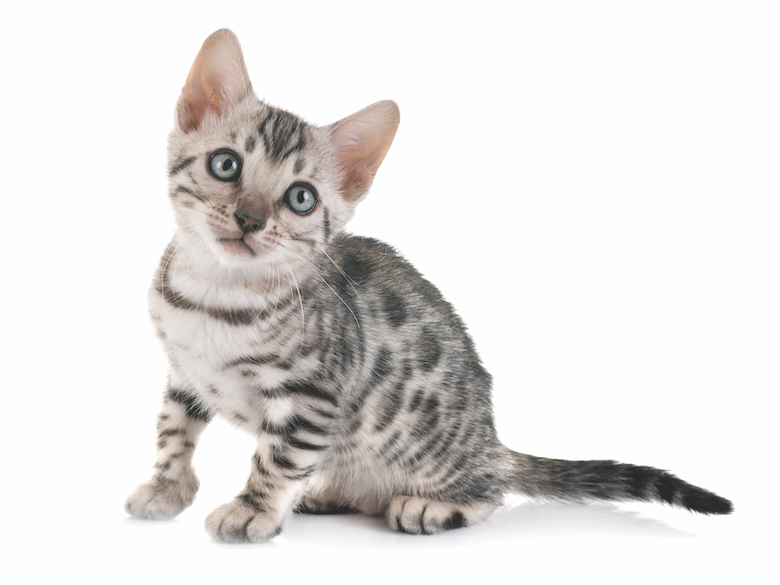
A Bengal is one of the best cat breeds for families with other pets and kids. Photo: lobalP | Getty Images
Where to get your cat
There are many places to find the right kitty. Adopting saves a life, while getting a cat from a breeder gives you a better idea of the cat’s background.
If you adopt from a shelter, a cat’s behavior may change when you bring him home. Shelter stress is common, and a scared cat hiding in his kennel can blossom into a playful, affectionate kitty once he’s settled in a loving home.
Shelters and rescues also have adoption counselors and specialists who are ready to help you pick the right cat for your family. They can recommend an animal by asking you lifestyle questions. If you adopt from a rescue that houses its cats through foster families, you can get a good idea of what that animal is like.
The decision to adopt a cat is personal and can be complicated, but those who love felines will tell you the process is well worth it.




